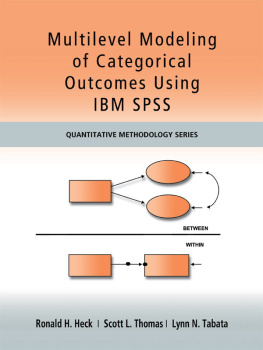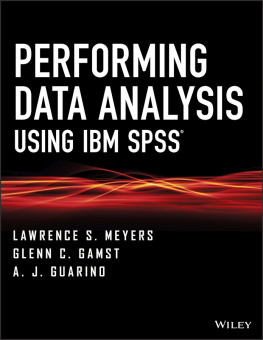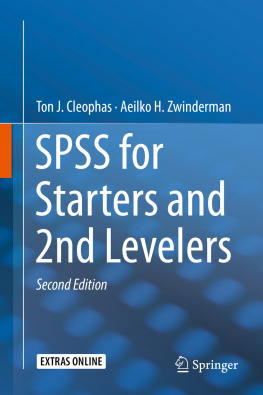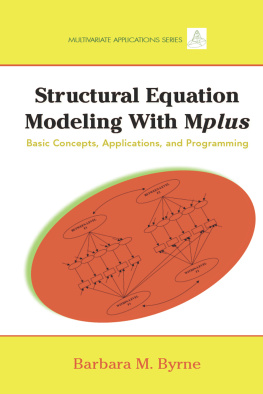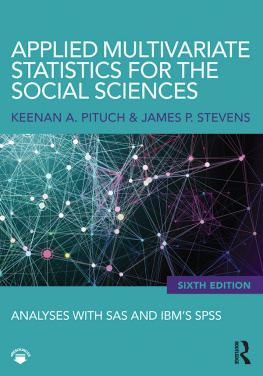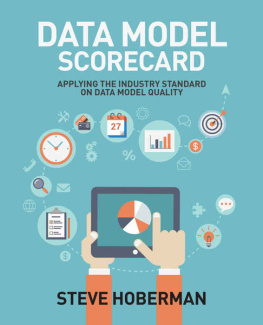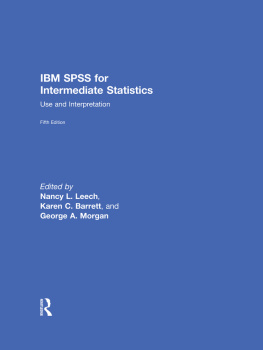Ronald H Heck - Multilevel Modeling of Categorical Outcomes Using IBM SPSS
Here you can read online Ronald H Heck - Multilevel Modeling of Categorical Outcomes Using IBM SPSS full text of the book (entire story) in english for free. Download pdf and epub, get meaning, cover and reviews about this ebook. year: 2012, publisher: Routledge, genre: Home and family. Description of the work, (preface) as well as reviews are available. Best literature library LitArk.com created for fans of good reading and offers a wide selection of genres:
Romance novel
Science fiction
Adventure
Detective
Science
History
Home and family
Prose
Art
Politics
Computer
Non-fiction
Religion
Business
Children
Humor
Choose a favorite category and find really read worthwhile books. Enjoy immersion in the world of imagination, feel the emotions of the characters or learn something new for yourself, make an fascinating discovery.
- Book:Multilevel Modeling of Categorical Outcomes Using IBM SPSS
- Author:
- Publisher:Routledge
- Genre:
- Year:2012
- Rating:5 / 5
- Favourites:Add to favourites
- Your mark:
Multilevel Modeling of Categorical Outcomes Using IBM SPSS: summary, description and annotation
We offer to read an annotation, description, summary or preface (depends on what the author of the book "Multilevel Modeling of Categorical Outcomes Using IBM SPSS" wrote himself). If you haven't found the necessary information about the book — write in the comments, we will try to find it.
This is the first workbook that introduces the multilevel approach to modeling with categorical outcomes using IBM SPSS Version 20. Readers learn how to develop, estimate, and interpret multilevel models with categorical outcomes. The authors walk readers through data management, diagnostic tools, model conceptualization, and model specification issues related to single-level and multilevel models with categorical outcomes. Screen shots clearly demonstrate techniques and navigation of the program. Modeling syntax is provided in the appendix. Examples of various types of categorical outcomes demonstrate how to set up each model and interpret the output. Extended examples illustrate the logic of model development, interpretation of output, the context of the research questions, and the steps around which the analyses are structured. Readers can replicate examples in each chapter by using the corresponding data and syntax files available at www.psypress.com/9781848729568.
The book opens with a review of multilevel with categorical outcomes, followed by a chapter on IBM SPSS data management techniques to facilitate working with multilevel and longitudinal data sets. Chapters 3 and 4 detail the basics of the single-level and multilevel generalized linear model for various types of categorical outcomes. These chapters review underlying concepts to assist with trouble-shooting common programming and modeling problems. Next population-average and unit-specific longitudinal models for investigating individual or organizational developmental processes are developed. Chapter 6 focuses on single- and multilevel models using multinomial and ordinal data followed by a chapter on models for count data. The book concludes with additional trouble shooting techniques and tips for expanding on the modeling techniques introduced.
Ideal as a supplement for graduate level courses and/or professional workshops on multilevel, longitudinal, latent variable modeling, multivariate statistics, and/or advanced quantitative techniques taught in psychology, business, education, health, and sociology, this practical workbook also appeals to researchers in these fields. An excellent follow up to the authors highly successful Multilevel and Longitudinal Modeling with IBM SPSS and Introduction to Multilevel Modeling Techniques, 2nd Edition, this book can also be used with any multilevel and/or longitudinal book or as a stand-alone text introducing multilevel modeling with categorical outcomes.
Ronald H Heck: author's other books
Who wrote Multilevel Modeling of Categorical Outcomes Using IBM SPSS? Find out the surname, the name of the author of the book and a list of all author's works by series.

